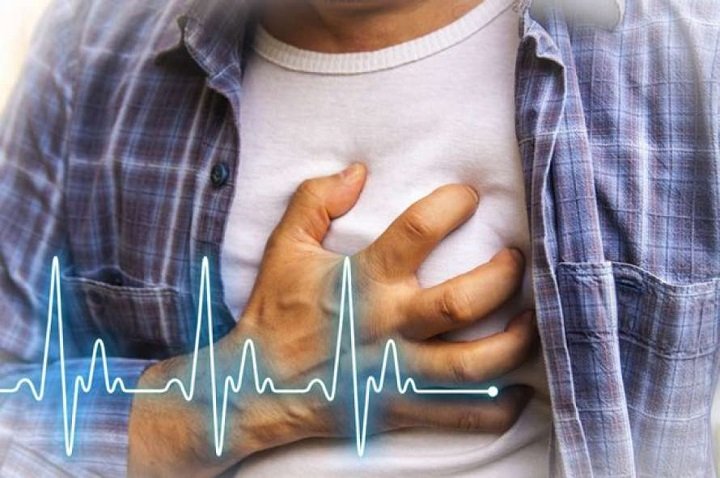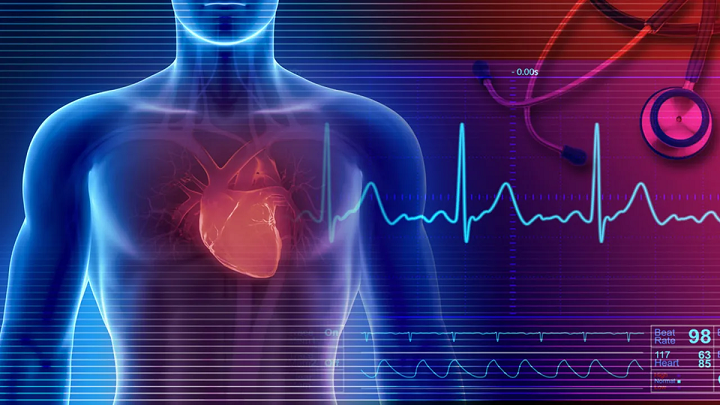Heart Rate For most adults Your heart rate, the number of times your heart beats in a minute, is one of the most essential indicators of wellbeing. It reflects how difficult your heart is working to keep blood streaming to each portion of your body. But what’s a “normal” heart rate? For most grown-ups, there’s a run considered solid, but different variables can influence it. In this post, we’ll plunge into what an ordinary heart rate looks like for most adults, variables that impact it, and tips for keeping your heart rate in a solid range.
What Is Heart Rate and Why Does It Matter?
Heart rate measures the number of heartbeats per minute (bpm) and tells us a parcel approximately by and large of wellbeing and wellness. It’s a basic imperative sign, like your body temperature or blood weight. An ordinary heart rate implies that your heart is effectively pumping blood all through your body without excessive strain. Knowing your heart rate can offer assistance you get if your cardiovascular framework is sound or if something might require advance attention.
What Is a Typical Heart Rate for Most Adults?
For most adults, an ordinary resting heart rate ranges from 60 to 100 beats per minute. This extend permits the body to work well in a resting state without putting excessive strain on the heart. Be that as it may, a few variables can cause the heart rate to vary:
- Athletes: Prepared competitors regularly have a lower resting heart rate, now and then as much as 40–60 bpm. Their hearts are more productive at pumping blood, which implies fewer beats are required to supply the body with oxygen.
- Age: As individuals get more seasoned, the resting heart rate may normally increment due to changes in the cardiovascular system.
- Physical Condition: Those in great physical shape ordinarily have a lower resting heart rate.
Factors That Influence Heart Rate
While 60–100 bpm is considered ordinary, a few variables can influence heart rate. Here’s a closer look at what can make your heart rate go up or down:
Activity Level
- During Workout: It’s typical for heart rate to increment amid workout as your body needs more oxygen.
- After Workout: A fit person’s heart rate returns to typical rapidly, whereas it may take longer for those less fit.
Emotions
Feelings of push, uneasiness, fervor, or fear can cause an increment in heart rate. This is a normal reaction, and as a rule, it dies down once you calm down.
Body Temperature
When you have a fever or are in a hot environment, your heart works harder to offer assistance cool the body, causing your heart rate to increase.
Medications
Some solutions can affect heart rate. For example, beta-blockers can moderate it down, whereas others, like decongestants, might increment it.
Caffeine and Stimulants
Caffeine and nicotine are stimulants that incidentally raise heart rate. Restricting these substances can offer assistance in keeping your heart rate steady.
Health Conditions
Conditions like heart illness, thyroid clutters, and lack of hydration can impact heart rate. It’s continuously a great thought to counsel a specialist if you take note sudden or visit changes.
How to Degree Your Heart Rate
Measuring your heart rate is straightforward and can be done without any extraordinary gear. Here’s a fast guide:
- Find Your Beat: Put your file and center fingers on your wrist, fair underneath the thumb, or on your neck next to your windpipe.
- Count Beats: Number the number of beats for 15 seconds.
- Calculate BPM: Increase the number of beats by four to get your beats per minute.
Alternatively, you can utilize a heart rate screen or smartwatch, which can grant you a real-time perusing and track it over time.
Understanding Resting Heart Rate vs. Target Heart Rate
It’s vital to recognize between your resting heart rate and target heart rate, particularly when pointing to make strides fitness.
1. Resting Heart Rate
This is your heart rate when you’re totally at rest, ordinarily measured in the morning some time recently any activity.
2. Target Heart Rate
- During a workout, point for a target heart rate run to guarantee you’re working out at the right concentration. A great target heart rate is regularly 50-85% of your greatest heart rate.
- To assess your most extreme heart rate, subtract your age from 220. For example, a 30-year-old has a greatest heart rate of around 190 bpm (220 – 30).
- Achieving and remaining inside your target heart rate while working out is an awesome way to fortify your cardiovascular framework and make strides in general fitness.
- Tips for Keeping up a Solid Heart Rate
- Keeping your heart rate in a sound range is basic for long-term wellbeing. Here are a few tips:
Exercise Regularly
Aerobic workouts like strolling, swimming, and cycling are fabulous for cardiovascular wellbeing and can offer assistance in lowering resting heart rate over time.
Manage Stress
Techniques like profound breathing, reflection, and yoga can offer assistance in keeping your pulse in check, which in turn makes a difference in keeping up a steady heart rate.
Limit Caffeine and Alcohol
- Get Sufficient Sleep
- Quality rest makes a difference in directing your heart rate and is fundamental for general heart health.
Stay Hydrated
Dehydration can strain the heart, driving to a higher heart rate. Drinking sufficient water all through the day can offer assistance in keeping your heart rate steady.
When to Be Concerned Almost Heart Rate
While intermittent changes in heart rate are typical, certain designs may flag a problem:
- Consistently Tall Resting Heart Rate: A resting heart rate over 100 bpm (called tachycardia) may show issues like stretch, uneasiness, or heart conditions.
- Consistently Moo Resting Heart Rate: A resting heart rate underneath 60 bpm (called bradycardia) is common in competitors but seems to be concerning if you feel woozy, tired, or brief of breath.
- Irregular Heartbeats: Feeling an unpredictable or “skipping” pulse can be safe in a few cases, but it’s worth talking about with a healthcare supplier if it happens frequently.
If you take note of diligent changes or have side effects like discombobulation, weariness, or shortness of breath, it’s best to counsel a healthcare professional for advice.
Conclusion
Heart rate is a basic, however capable, pointer of wellbeing, giving us knowledge into how our hearts and bodies work. For most grown-ups, keeping up an ordinary resting heart rate of 60–100 bpm is perfect. By understanding the variables that impact heart rate, you can take steps to keep it in a sound state and progress your cardiovascular wellbeing. Keep in mind that customary workouts, push administration, and remaining hydrated are a few ways to bolster a sound heart rate. If you’re ever uncertain approximately your heart rate, don’t delay to counsel a healthcare provider.
For more in-depth data on heart rate and heart wellbeing, consider perusing trusted sources like the American Heart Association.
FAQs
1. What Is a Perilous Heart Rate for Adults?
A resting heart rate over 100 bpm or beneath 60 bpm (in the event that not a competitor) may demonstrate an issue. Contact a healthcare supplier if you have concerns about your heart rate.
2. How Can I Lower My Resting Heart Rate?
Regular workouts, stretch administration, restricting caffeine, and remaining hydrated are all viable ways to offer assistance in lowering your resting heart rate.
3. Is a lower heart rate better?
Generally, a lower heart rate suggests more proficient heart work and superior cardiovascular wellness. In any case, it’s imperative that a low heart rate doesn’t come with discombobulation or fatigue.
4. Can drying out influence heart rate?
Yes, parchedness can increment your heart rate as the body works harder to keep up the blood stream. Remaining hydrated makes a difference; your heart keeps up a consistent rate.
5. How Does Age Influence Heart Rate?
As individuals age, their greatest heart rate decays, but the resting heart rate may increment somewhat. Checking heart rate gets to be indeed more vital with age.



